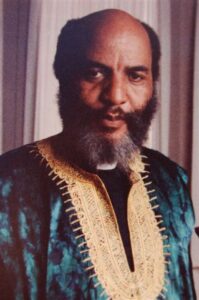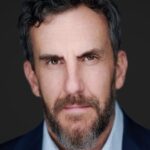This year marks the 60th anniversary of Project C, the ten-week campaign to end segregation in Birmingham, Alabama, led by Martin Luther King Jr, Fred Shuttlesworth, Wyatt Walker, and James Bevel. The following is a modified excerpt from the book You Have to Be Prepared to Die Before You Can Begin to Live: Ten Weeks in Birmingham That Changed America by Paul Kix. In this excerpt, the leaders of the movement are feeling disheartened. They came to Birmingham to have mass protests and mass arrests. If they filled the jails, the rest of the country would sit up and take notice. But when they got to Birmingham, no one wanted to protest, partly because no one wanted to lose their jobs. So during this part of this true story, one of the leaders, James Bevel, has an idea. If the adults aren’t willing to go to jail, why don’t they ask children?

Children? King stared at Bevel.
Was the man crazy? Many people said so. Even King thought so on occasion. He wasn’t angry at Bevel so much as shocked. Thousands of children willing to protest, and at a time when the SCLC could not find dozens of adults. Were the kids aware of what might happen to them? What might happen to their parents when they—and their white employers—learned the children had protested? Would the parents lose their jobs? Go to jail themselves? What would happen to the kids in jail?
No one knew.
They proceeded anyway.
On the day of the march, inside the church, many children experienced what one later described in writing: “Goose bumps of terror rose on my arms. Are those tanks going to shoot bullets at us, like in a real war?”
There was another question, just as pressing: Where was Martin Luther King Jr?
He was not in the church. Local members of the campaign’s organizing committee went looking for him on the sidewalks. Only when they went to the Gaston Motel a half block south of the church did Black civic leaders or pressmen learn that King was in his suite, in room 30. He was not seeing visitors.
We don’t know why King stayed in his suite that morning. In all his subsequent writings he never broached the subject. People close to him said he stayed in the suite, “wrestling with his conscience.” His uncertainty over what was right might have effectively paralyzed him that morning.
His absence affirmed one thing to his deputies, waiting for him at 16th Street Baptist. This day was theirs. Specifically, it was James Bevel’s.
* * * * *
Fifty children marched two by two. They sang “We Shall Overcome” as they moved straight into the phalanx of cops across the street in Kelly Ingram Park. When officers told them to halt, they did. When officers told them to return to the church, they did not. The officers said the children were in violation of the city’s code for parading without a permit. The children dropped to their knees and prayed, as they’d been instructed. In the filmed footage from this day, some cops looked puzzled, they in battle helmets, unarmed children praying at their feet, the cops glancing at each other as if asking, How do we do this?
Gently, it turned out. The cops carefully lifted the kids one by one and walked the arrested children to a waiting paddy wagon. Whether out of their own concern or because of the national press corps a few yards away that recorded this encounter, the cops seemed to breathe a sigh of relief when the fifty children were driven off, as if their work were done.
It was at that point that Bevel had the next fifty march out.
It went like this for an hour. A freedom song; You’re in violation of the city’s code; children praying on their knees; a paddy wagon; a lull when it looked like these were the last of the child protesters; then another fifty stepping out of the church.
The cops began to run out of paddy wagons.
Around this time, one officer approached Fred Shuttlesworth, standing outside 16th Street Baptist.
“Hey, Fred. How many more have you got?”
“At least a thousand.”
“God a’mighty.”
By the end of the afternoon, 973 children had been arrested.
* * * * *
“The whole world is watching Birmingham!” Fred Shuttlesworth shouted at that night’s mass meeting, held at Sixth Avenue Baptist. More than two thousand people looked back at him, rising and amen-ing and applauding, the largest crowd yet for any mass meeting.
James Bevel spoke, too. He asked for a show of hands: Who’d been inspired by the children? It seemed almost two thousand arms shot up.
King spoke as well. “I have been inspired and moved today,” he said. He meant that literally: He’d pushed himself from his room in the Gaston in part because the afternoon could not have gone better. Peaceful protests, mass arrests, no counterviolence, no injuries. And the greatest of God’s beneficence: They were close to filling the jails. “I have never seen anything like it!” King shouted to the crowd.
For every child arrested, two or three more had come in through the back of the church, hoping to protest. “Some of us might have to spend three or four hours tonight planning our strategy for tomorrow,” King said. “If they think today is the end of this, they will be badly mistaken.”
Copyright © 2023 by Paul Kix
 Paul Kix is an author and writer whose last book was The Saboteur, a bestselling and critically acclaimed true story of the most daring man in World War II. His writing has also appeared in The New Yorker, The Atlantic, GQ, and ESPN The Magazine, among other publications. He lives in Connecticut with his family.
Paul Kix is an author and writer whose last book was The Saboteur, a bestselling and critically acclaimed true story of the most daring man in World War II. His writing has also appeared in The New Yorker, The Atlantic, GQ, and ESPN The Magazine, among other publications. He lives in Connecticut with his family.
